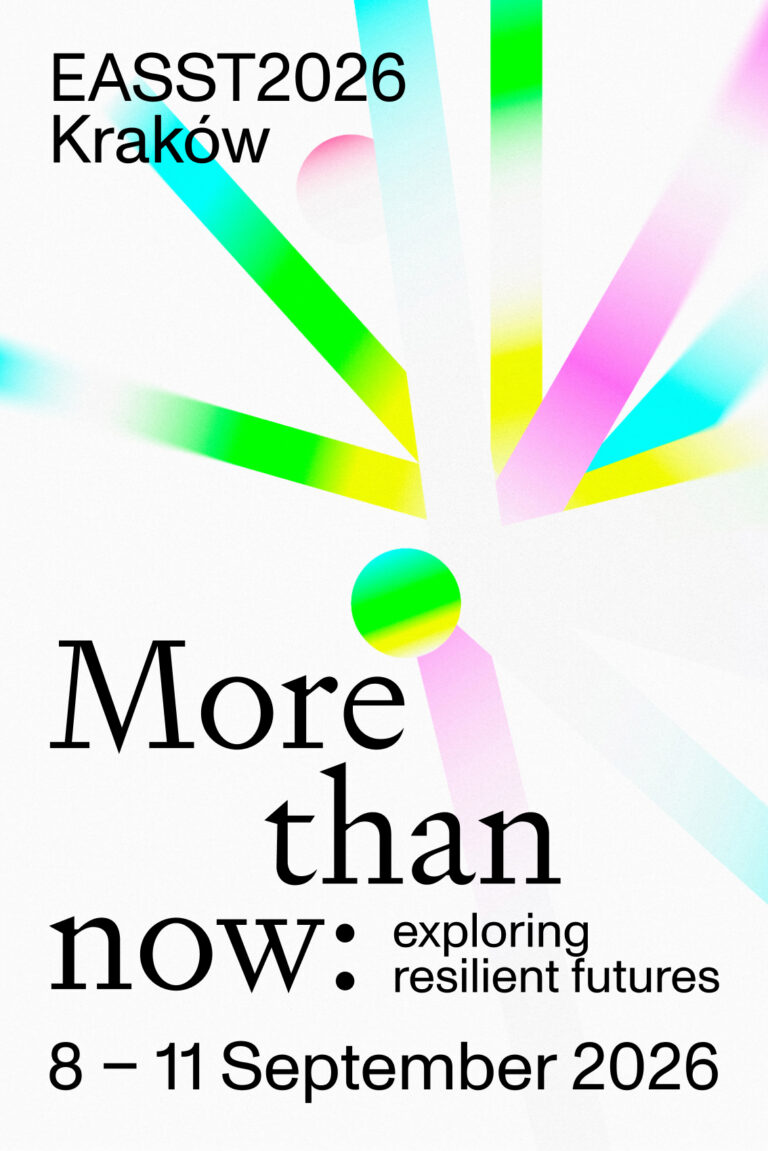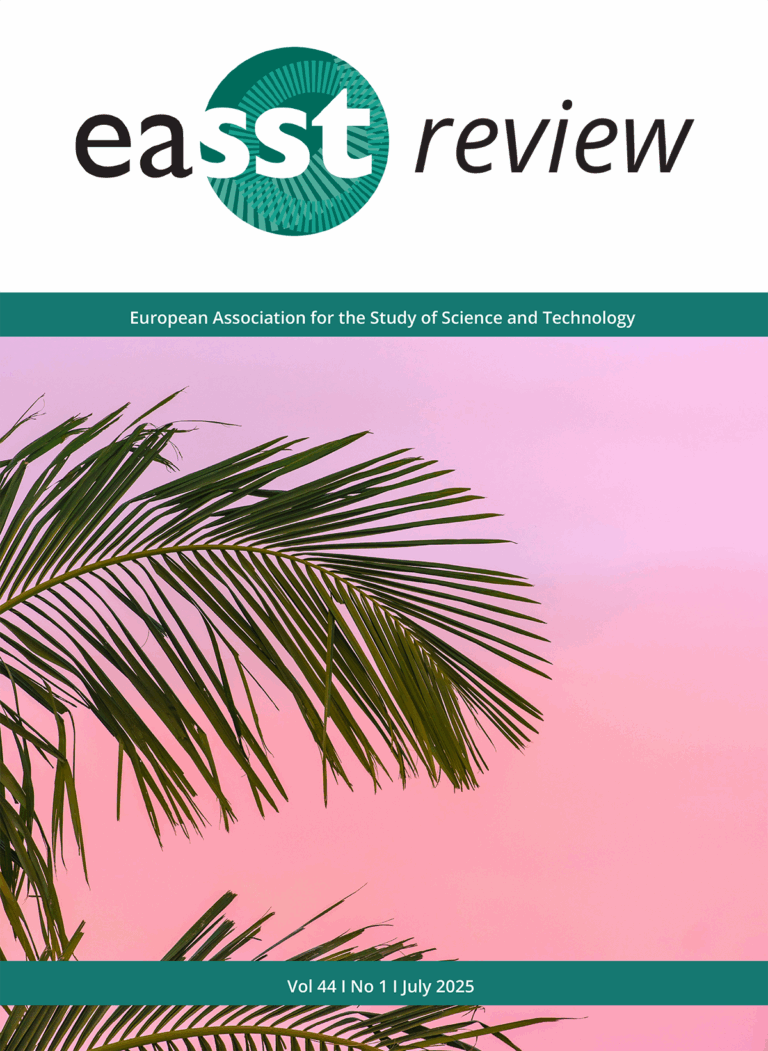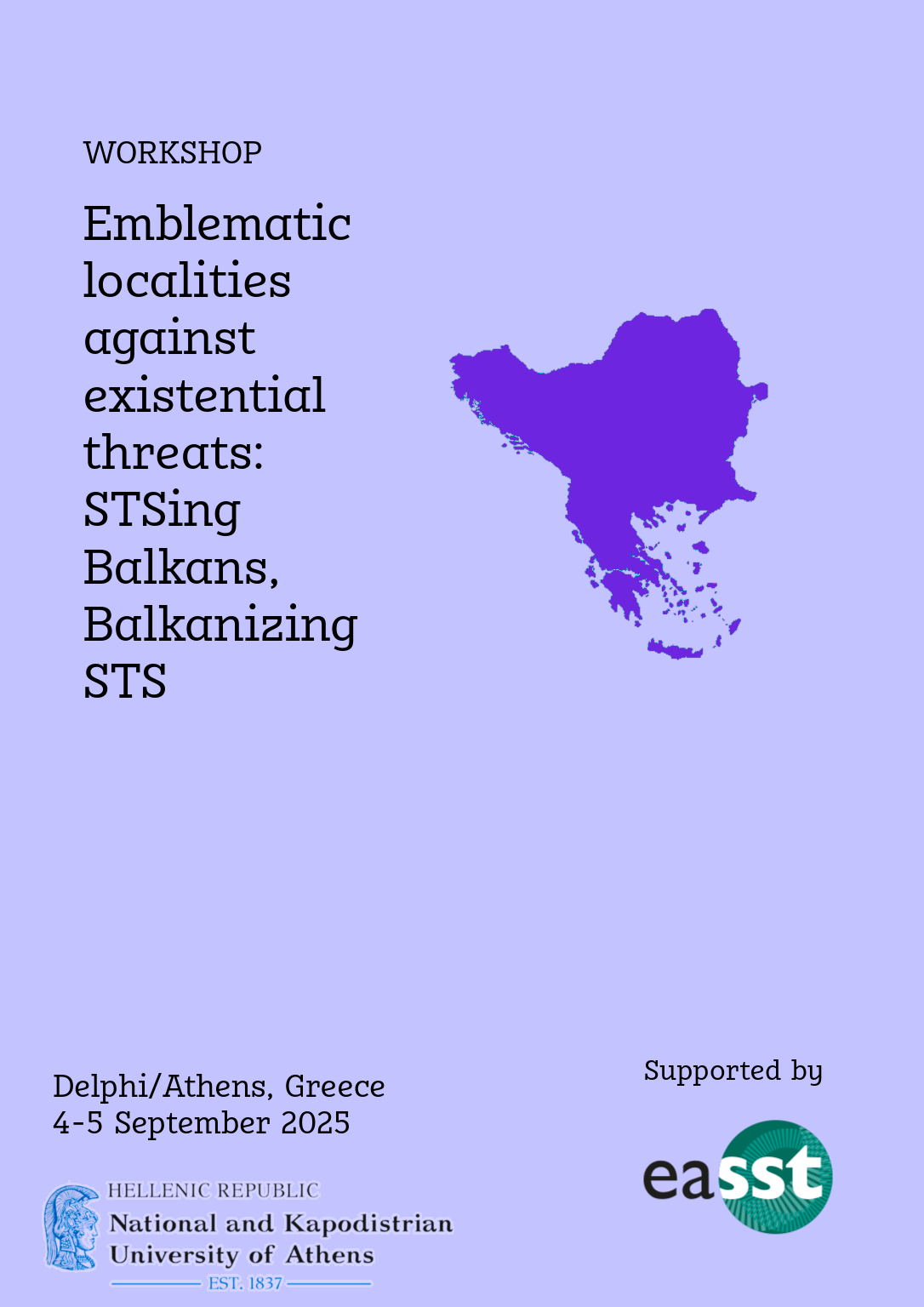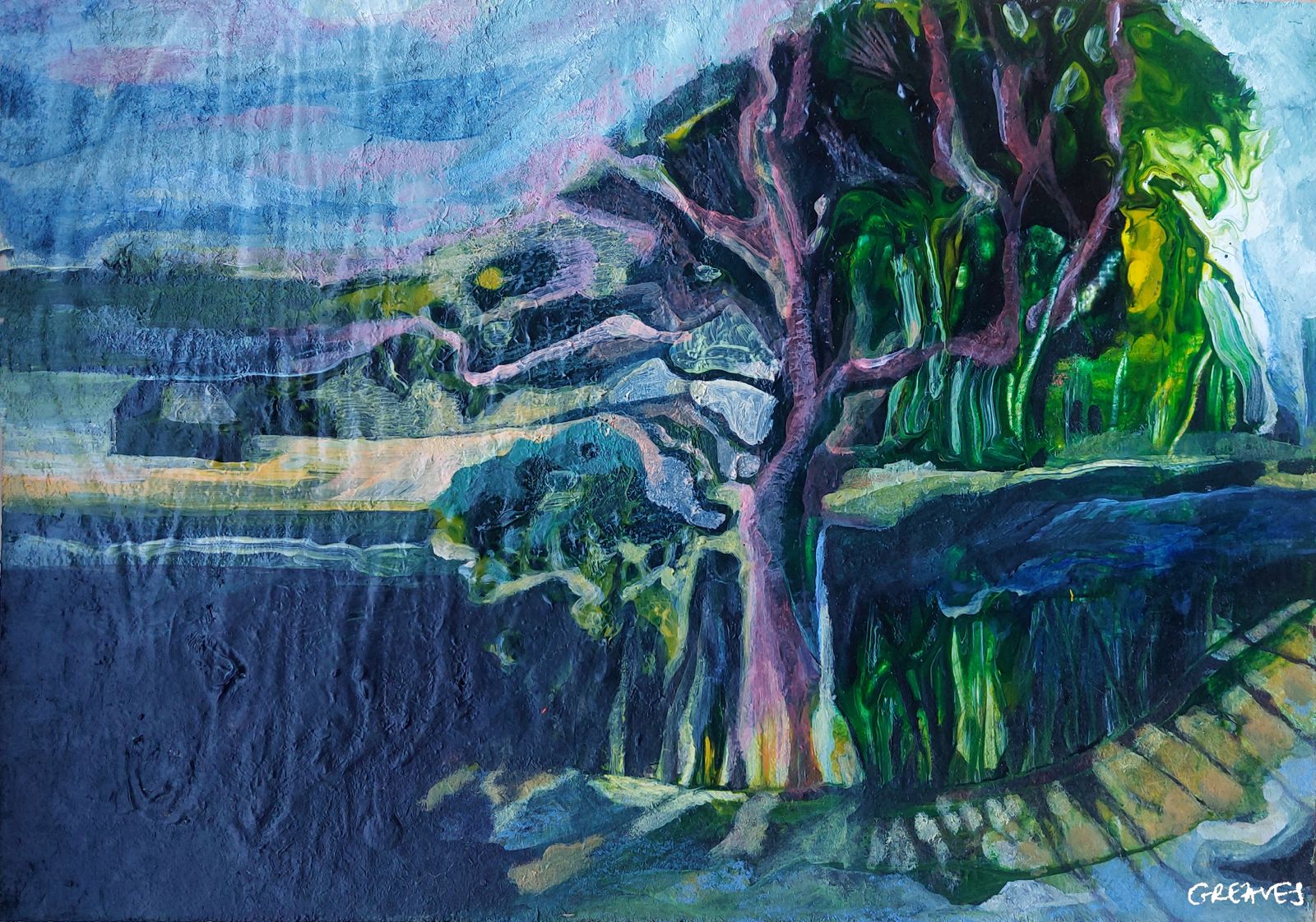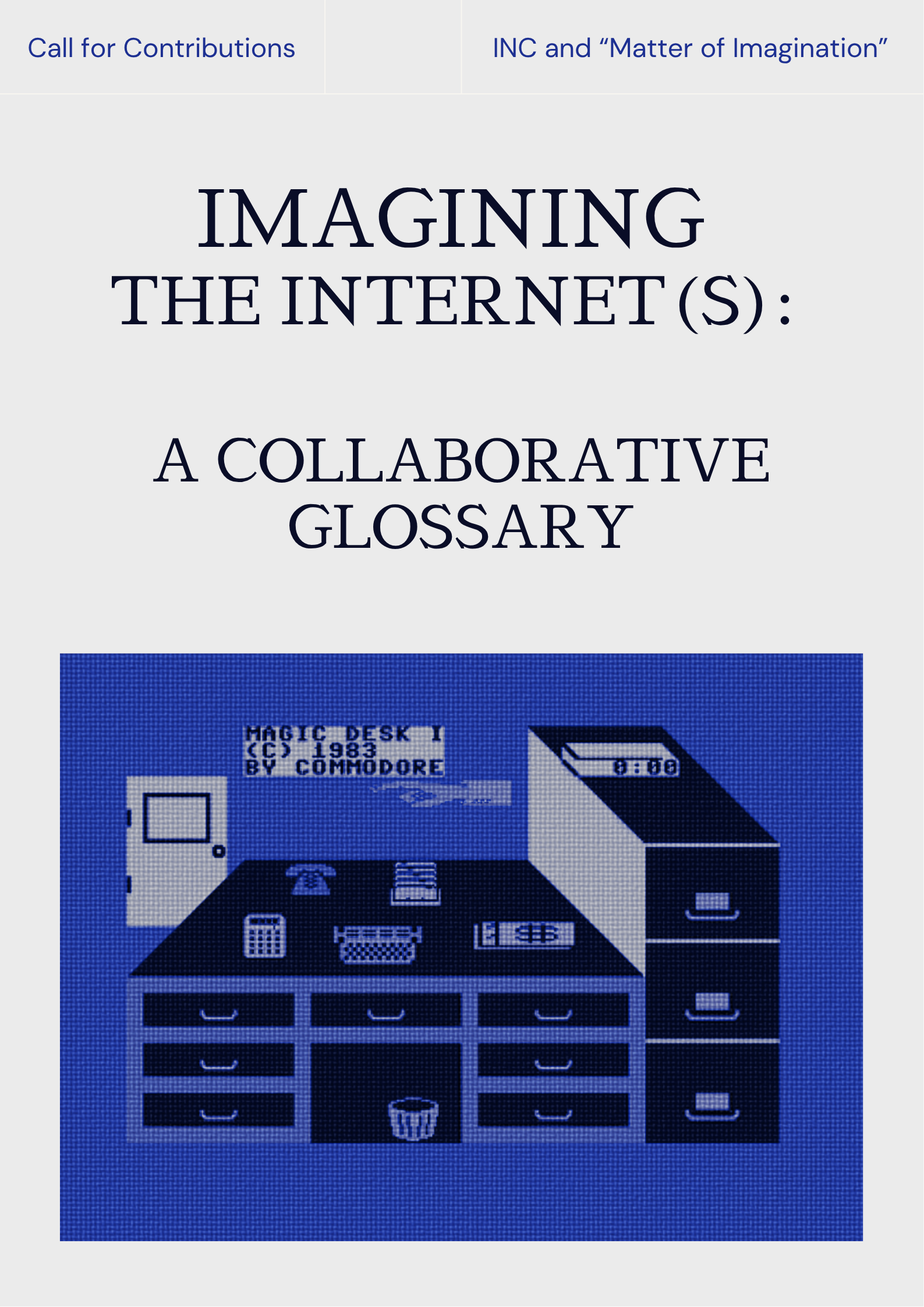We invite you to join us for EASST’s Biennial Conference, to be held in Krakow, Poland, 8-11 September 2026.
The Call for Panels is open and closes 31 Oct 2025
This issue reaches readers at the end of the teaching year for many and the start of the summer, when we look forward to being reunited with our writing projects, attending workshops with colleagues, and having some time away with family or friends.
In our previous edition we reflected on and celebrated the largest ever STS gathering of EASST/4S in Amsterdam last July. Since then, STS has been very much alive, manifesting its creativity through diverse formats and smaller, innovative meetings across Europe and beyond.
EASST Awards
Since our 2012 conference in Copenhagen, EASST has been celebrating collaboration and cooperation in our field through a set of awards.
2024 Award winners
The Awards were presented at the EASST4s-2024 conference in Amsterdam.
EASST Fund
The EASST Fund call for applications is currently closed. Visit the EASST Fund page for more information.
EASST Fund aims to promote national and cross-national community building within EASST, advance new questions, topics and perspectives in science and technology studies, as well as enable collaboration with non-academic actors publicly engaged in science and technology.
Read about the supported events via the links below and on the EASST Fund webpage.
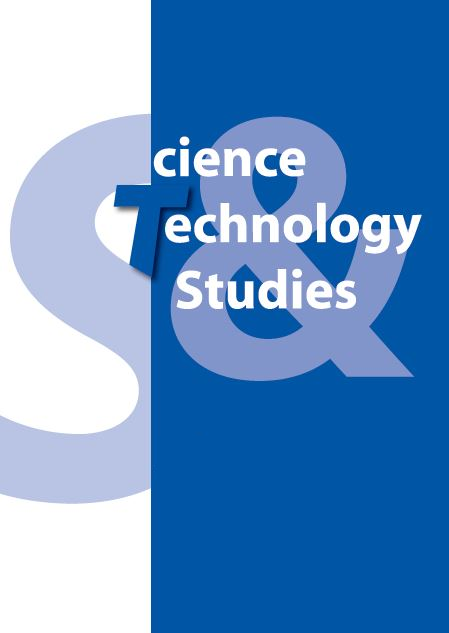
EASST’s international, peer reviewed, online journal Science & Technology Studies has four issues a year. It is fully open access with EASST members being emailed when a new issue is published. To view the latest issue view the journal site.
